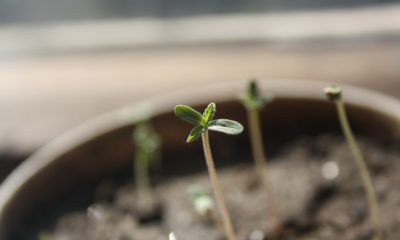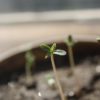
Cultivation
By Any Other Name
How Williams Canna Co. is earning its heritage in Southern Oregon.
It takes a lot of chutzpah to claim a place. Alex Schutz knew that he was treading on hallowed ground when he named his cannabis business after Williams, a small town in Southern Oregon just over the border from California’s northernmost Siskiyou County. Williams has a long legacy of cannabis cultivation, much like its Emerald Triangle neighbors to the south, with a solid population of territorial growers who could contest such a name. But Schutz says he’s been in Williams for years, he’s growing cannabis genetics from a family who’d been in the town since the ’80s and he’s using natural inputs from the land itself, so why not?
“It’s a bold feeling to be claiming the Williams name and putting it first,” Schutz says. “But as the cannabis industry started to take hold in Oregon and we started to see what the consumers were buying and what they liked, we saw they were gravitating towards name brands that were trending and I didn’t have any — and I still don’t mess with them. What I grow are all Williams genetics and so I decided to name this company Williams Canna Co.” Schutz first made a name for himself in Oregon as a breeder in the medical marijuana industry through his company Supermodel Seeds. Today, more than many other breeders, he avoids working with trendy strains and phenotypes (you won’t find a Purple Punch or a Zkittlez in his lineup), but instead works with those more classic and obscure genetics — and focuses on growing the strains he has created with the most regenerative methods he can muster.

When it comes to farming in Williams, Schutz says the process of building his cannabis flower operation has always been about creating healthy soil using resources from the land itself.
“The more you recognize what is available to you in nature right next to you, the less you find yourself looking for things you don’t need,” Schutz says. “My goal is to bring absolutely nothing into the garden that didn’t come from our property next year.”
Today, Schutz says that Williams makes its own mulch and composts from decaying matter gathered from the land, grinds rocks into soluble phosphorous and potassium to use as fertilizer, and cultivates native plants to be harvested and used around the farm.
“This farm is my organism to play with and I’m making it as beautiful as I can with very little resources,” he says.
The work to breed and grow quality strains with regenerative inputs seems to be paying off, as Schutz says the company is increasingly recognized among “respected heads” in Oregon and wholesalers are willing to pay him twice what they did in the fall 2018.
However, these past few years in Oregon’s cannabis industry have not been easy going. After the state’s legal adult-use cannabis market launched in 2017, many farmers struggled in the face of a huge glut of flower, rock-bottom prices, and increased regulations and taxes. The state’s decades-old medical marijuana program slowly dwindled in the face of higher costs of entry for patients and producers alike.
In 2017, Schutz was unsure if he wanted to stay in the medical market or switch to the recreational side. But by the end of the 2019 season, he says he knows he made the right choice.

“We decided to go ahead and prove ourselves on the recreational market, and I was a little nervous having a menu of strains few people had heard of,” he says. But he has no regrets: “I couldn’t have asked for a better time to be in the rec game.”
Williams Canna Co. is currently growing F2s of Supermodel Seeds genetics, clones from the Humboldt Seed Company, inbred F1s, and “a whole host of generations of stable, deeply related, true-bred seed stock,” Schutz says.
In the future, the farm plans to conduct its own genotyping on-site with advanced testing machinery, which will allow it to greatly speed up its genetic projects.
“I’ve been trying to stay true to who I am and my mission in the industry and I’m not trying to rush to have genetic backcrosses that are feminized and that are cooked up from the same female plants,” he says. “I’ve been working slowly but surely on true-bred lines.”
This slowly-but-surely mentality applies to his cannabis cultivation practices as well, where he says the years of hard work on the land itself is allowing the cannabis to take care of itself, to burrow its roots more firmly in the ground.
“The more you establish your garden, the less work you have to do,” Schutz says. “The herb looks better than ever before. It’s unbelievable, I can’t believe it. It’s pushing the limits with how it can do everything on its own.”
TELL US, have you ever wanted to grow your own weed? What strain would you choose to start with?
Originally published in Issue 40 of Cannabis Now. LEARN MORE


























